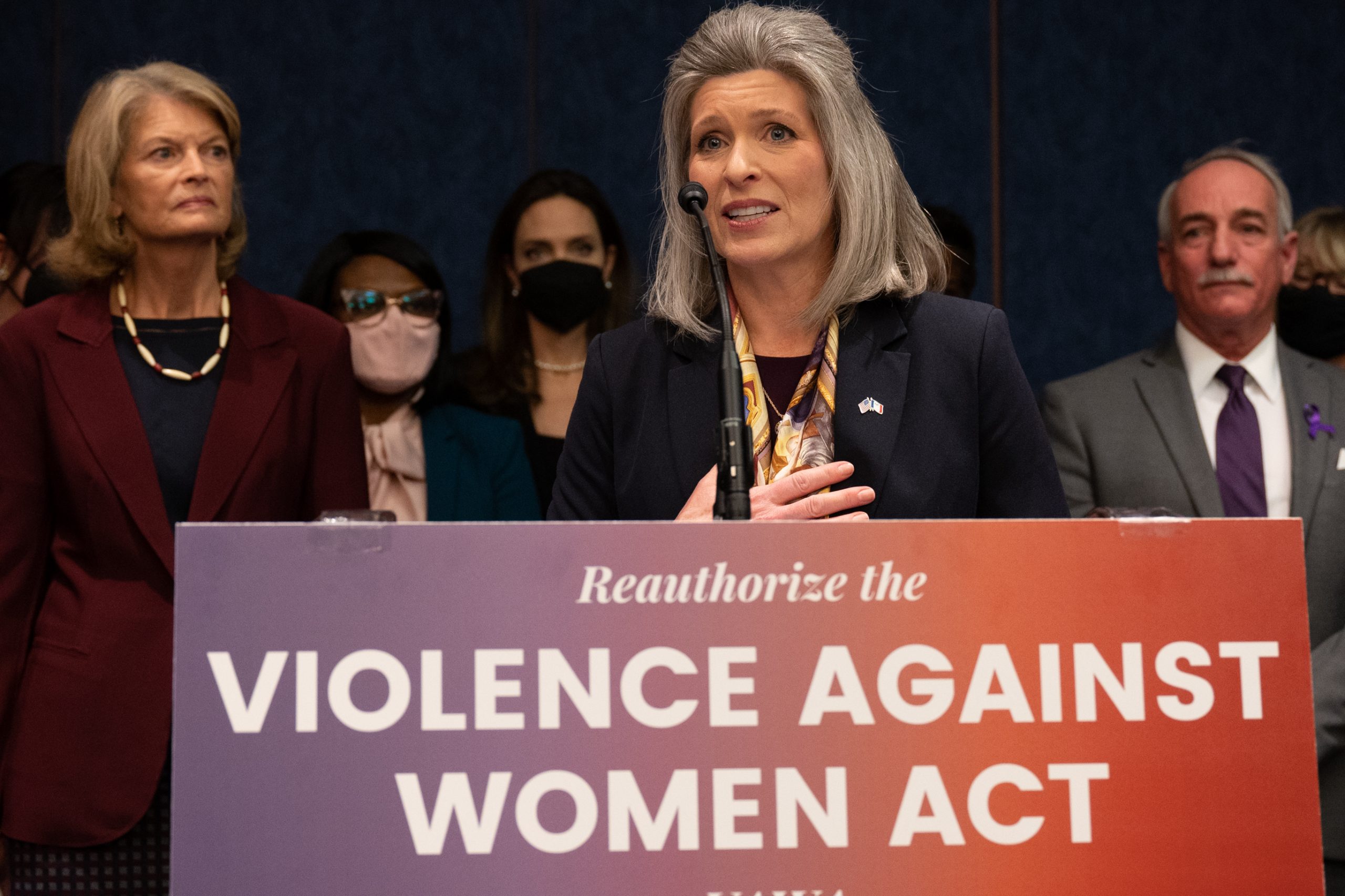
Willie R. Tubbs, FISM News
[elfsight_social_share_buttons id=”1″]
A group of 18 senators, consisting of nine Republicans and nine Democrats, announced Wednesday they’d reached a compromise on an act that provides assistance to women and girls who have been victimized by sexual or domestic abuse.
Senators Joni Ernst (R-Iowa), Dianne Feinstein (D-Calif.), Lisa Murkowski (R-Alaska), and Dick Durbin (D-Ill.), the group’s leaders, said that the Violence Against Women Act, which had expired in 2018, would soon be extended through 2027.
BREAKING NEWS: After three years of negotiations, Chair @SenatorDurbin, @SenJoniErnst, @SenFeinstein, & @lisamurkowski have officially introduced the bipartisan Violence Against Women Act Reauthorization Act to modernize and reauthorize #VAWA through 2027.
— Senate Judiciary Committee (@JudiciaryDems) February 9, 2022
“This bill is the result of a true bipartisan effort, written in partnership with those working to prevent violence and support survivors,” Feinstein said during a joint press conference, later adding that the bill will offer, “important protections to survivors of domestic violence, dating violence, sexual assault and stalking. I hope the Senate will move quickly to pass it.”
The key portions of the renewed act will be the re-creation of services and programs geared toward helping young victims of rape and abuse, training law enforcement how to properly respond to domestic abuse accusations, preventing abuse of people over 50, addressing workplace violence or sexual misconduct, and boosting the quality of medical response to domestic abuse.
The bill dropped the closing of loophole that allows boyfriends convicted of abuse to purchase firearms, even though it has long been illegal for convicted spouses to access guns. The majority of Republicans have the opposed the loophole at the urging of the National Rifle Association as it contends it unnecessarily places further restrictions on guns without providing more protection for domestic abuse victims.
Durbin said he may bring up the provision in a separate vote as he believes he is near the 60-threshold that it would need to pass.
According to a Feinstein press release, the bill will offer assistance for combating rape and violence on tribal lands, and it will create LGBT-specific services.
Ernst said that the bill was one that she was specifically invested in, having been a victim of sexual and domestic abuse herself:
As a survivor of domestic violence and sexual assault, I know firsthand the horrific experience too many women face at the hands of a perpetrator. That’s why for three years I’ve worked diligently and across the aisle to craft a bill that will modernize this important law to ensure my fellow survivors are supported and empowered.
Durbin said neither Republicans nor Democrats got everything they wanted in the final bill, but said it signaled a meaningful step forward in the equally divided Senate, where even unilaterally popular legislation can quickly bog down.
“This bill represents the very best of Washington: a bipartisan coalition coming together to prove this country’s commitment to protecting the most vulnerable,” Durbin said. “A modernized Violence Against Women Act will strengthen what has been a critical lifeline to victims and survivors of abuse for nearly three decades. We need to ensure every survivor, whether they live in rural Alaska or urban Illinois, has help in a moment of crisis.”
President Joe Biden took Wednesday’s announcement as a victory and indicated he would sign the bill when presented with the chance.
“Combatting domestic violence, sexual assault, dating violence, and stalking should not be a Democratic issue or Republican issue,” Biden said in a statement. “It’s a matter of justice and compassion. I am grateful that this critical bipartisan bill is moving forward, and I look forward to Congress delivering it to my desk without delay.”
Joining Ernst, Feinstein, Murkowski, and Durbin in support of the bill were: Senators Patrick Leahy (D-Vt.), Susan Collins (R-Maine), Patty Murray (D-Wash.), Shelley Moore Capito (R-W.Va.), Jeanne Shaheen (D-N.H.), Rob Portman (R-Ohio), Brian Schatz (D-Hawaii), John Cornyn (R-Texas), Sherrod Brown (D-Ohio), Kevin Cramer (R-N.D.), Ron Wyden (D-Ore.), Thom Tillis (R-N.C.), Richard Blumenthal (D-Conn.) and Jerry Moran (R-Kan.).
